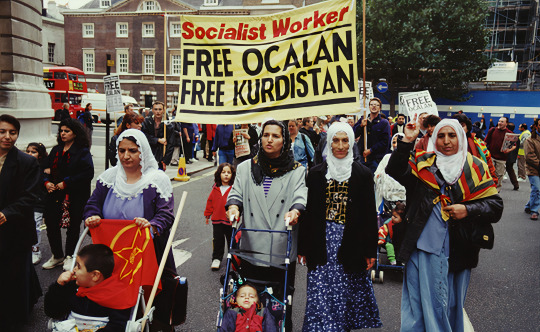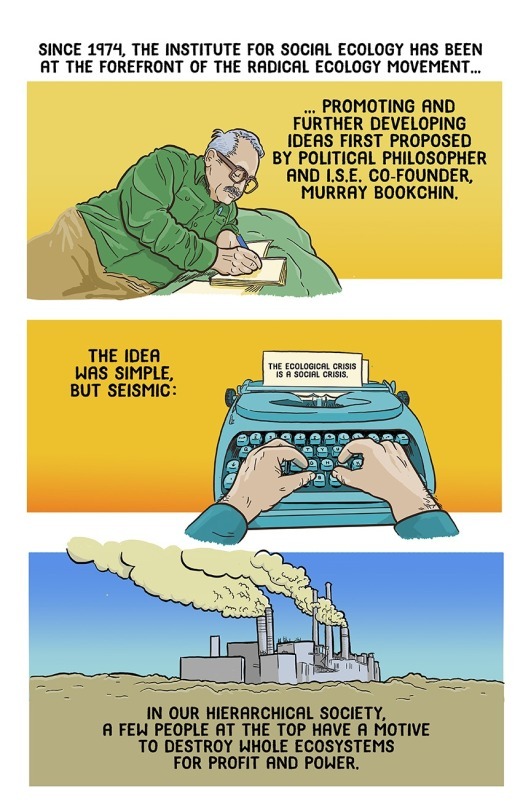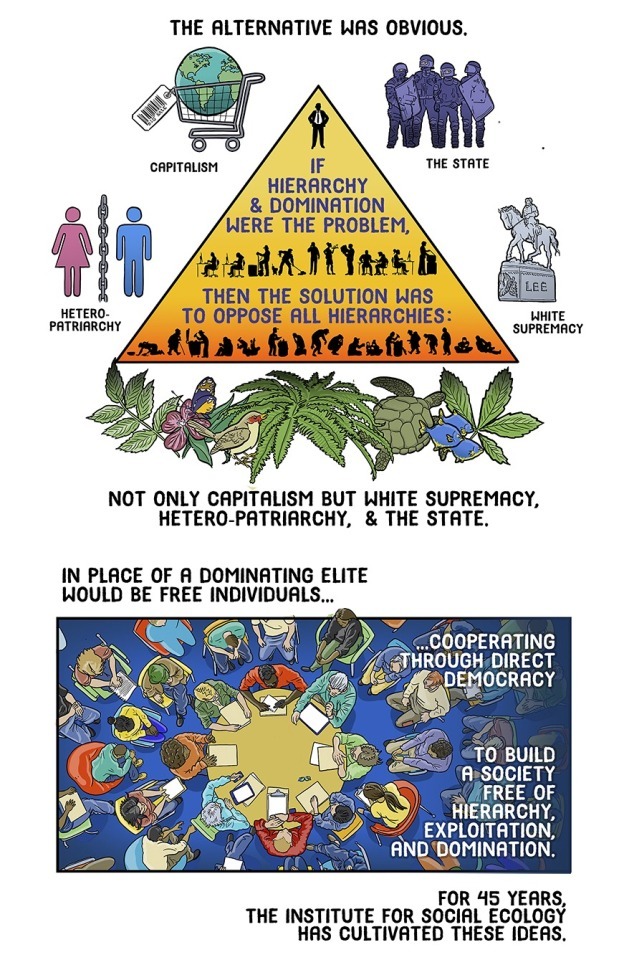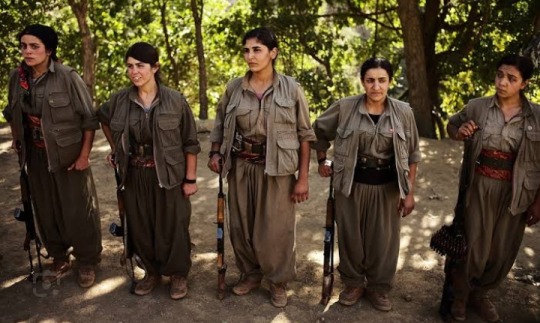#Abdullah Ocalan
Text
DECOLONIAL ACTION READING
I recently compiled these to add to a comrade’s post about Land Back, but actually I think they deserve their own post as well.
Amílcar Cabral - Return To The Source
Frantz Fanon - The Wretched Of The Earth
Hô Chí Minh - archive via Marxists.org
Thomas King - The Inconvenient Indian
Abdullah Öcalan - Women’s Revolution & Democratic Confederalism
Edward Said - The Question Of Palestine
Thomas Sankara - archive via Marxists.org
Eve Tuck & K. Wayne Yang - Decolonization Is Not A Metaphor
Other key names in postcolonial theory and its practical application include:
Sara Ahmed
Homi K. Bhabha
Aimé Césaire
Albert Memmi
Jean-Paul Sartre
Léopold Séder Senghor
Gayatri Chakravorty Spivak
All of these will help you interpret and confront the realities of colonisation, and ideally help us understand and extend solidarity to comrades around the globe. Decolonise your mind, and don't stop there!
#land back#postcolonial#postcolonialism#postcolonial theory#decolonization#decolonize#decolonise#decolonisation#Edward Said#Tuck & Yang#Frantz Fanon#Amilcar Cabral#Free Ocalan#Sankara#Ho Chi Minh#Thomas Sankara#Abdullah Ocalan#original#Thomas King#Eve Tuck#K. Wayne Yang
2K notes
·
View notes
Quote
There is no law that states that a natural society must necessarily develop into a hierarchical and subsequently statist society. There may be a propensity towards such a development, but equating such a propensity with an inevitable, incessant process that has to run its full course would be an erroneous assumption. Viewing the existence of classes as fate has become nothing but an unintended tool for class ideologists.
The Political Thought of Abdullah Öcalan
175 notes
·
View notes
Text

When Lenin advocated the replacement of the “bourgeois state” by the “proletarian state,” he thought he was engaging in honest and accurate reasoning, but there simply cannot be a “proletarian” version of the state as a social form.
Many since Spartacus have attempted this, but they have all failed. Even the Soviet experiment could not avoid collapse, despite the fact that it was carried out in roughly a third of the world.
The main reason being that the state form exists essentially to serve the lifestyle of the oppressive and exploitative groups and classes. That is why it was created. It cannot provide the form for equality and freedom for those groups and classes who are subjected to oppression and exploitation. Not only is its essence not suitable, its form also contradicts freedom and equality.
— Abdullah Öcalan, Beyond State, Power, and Violence
55 notes
·
View notes
Photo

kurdish women demonstrating after the arrest of PKK leader abdullah ocalan, london, united kingdom, 1999 by steve eason
225 notes
·
View notes
Text
"Social realities are constructs. People mistakenly believe social institutions and structures to be natural realities because the regimes striving to construct legitimacy for these social systems present them as unchangeable and sacred."
Abdullah Öcalan (author, Manifesto for a Democratic Civilization, 2015)
#capitalism#modernism#cultural legitimacy#abdullah ocalan#writeblr#quote#writing#novel writing#fiction writing#writing tips#writing advice
3 notes
·
View notes
Text

38 notes
·
View notes
Text
Comic by the Institute for Social Ecology



#socialist#socialism#communist#communism#social ecology#communalism#murray bookchin#abdullah ocalan#envrionment#environmentalism#ecology#comics#politics#us politics#hierarchy#feminism#democracy#racial equality#equal rights
33 notes
·
View notes
Text

Revolução no Curdistão - Solidariedade Internacionalista
J.Companheiro
#anarquismo#anarquista#jcompanheiro#riseup4rojava#rojava#curdo#kurdistan#revolução social#rojavarevolution#confederalismodemocratico#freedom#abdullah ocalan#internacionalista#solidariedade#jin jiyan azadi#ypj#adesivo#sticker#artedigital#colagemdigital#desenho#ilustraçãodigital
3 notes
·
View notes
Text
youtube
David Wengrow: THE THIRD FREEDOM - 3rd Annual David Graeber Memorial Lecture
1 note
·
View note
Text
Current reading democratic confederalism by Abdullah Öcalan. Sounds interesting.
Apparently what the kurds want for themselves is not the same old nation state but something else. I wonder what it would look like, though this little booklet is far too short for me to expect a complete answer.
Maybe it sells me on the idea though. Maybe it is something like the Americas used to be before the establishment of the settler-colonial states of today. We'll find out.
0 notes
Text
just want a thicc communalist gf/bf/jf
6 notes
·
View notes
Quote
Capitalist modernity is a system based on the denial of love. Its denial of society, unrestrained individualism, gender discrimination in all areas, deification of money, substitution of God with the nation-state and turning woman into an automaton that receives no or little wages, mean that there are no material grounds for love either.
The Political Thought of Abdullah Öcalan
165 notes
·
View notes
Text
Turkey and the United States have been treaty allies since Ankara joined the trans-Atlantic alliance in 1952 by formally becoming a member of NATO. Over the ensuing 70 years, Turkey’s bilateral relationship with the United States has been through its fair share of ups and downs. In the mid-1960s, the relationship was rocked by the secret U.S. deal with the Soviet Union to withdraw Jupiter missiles from Turkey during the Cuban missile crisis and former U.S. President Lyndon B. Johnson’s letter threatening not to defend Turkey over Cyprus.
Later differences over Vietnam created an anti-American backlash in Turkish public opinion. In the mid-1970s, the Turkish invasion and occupation of Northern Cyprus led to a congressionally imposed arms embargo and subsequent limits on U.S. arms exports to Turkey. Despite these periodic difficulties, a common threat perception about the dangers that Moscow posed to European and global security helped maintain a strong government-to-government relationship during the Cold War.
Following the Soviet Union’s demise in the early 1990s, the relationship between Washington and Ankara blossomed for a time and arguably reached a peak at the turn of the millennium, when President Bill Clinton declared that U.S.-Turkish ties constituted a “strategic partnership,” and U.S. diplomatic activism helped secure an invitation to Ankara from the European Union to open accession talks (an objective of Turkish foreign policy since the early 1960s).
Under the leadership of President Recep Tayyip Erdogan, this relationship has essentially been driven off a cliff during his two decades of domination of Turkish politics. Since 2003, the bilateral relationship has slowly been purposefully undermined to the point that Washington no longer has a reliable ally to work with. These days, the relationship is characterized by Turkey’s mercurial, hypocritical, and callous stance on a range of security issues.
Since the first Gulf War, Washington has gone to great lengths to accommodate Ankara’s regional security concerns. The Clinton administration was visionary in promulgating Operation Provide Comfort, which not only prevented Saddam Hussein from killing more of Iraq’s Kurdish population, but also ensured that the separatist Kurdistan Workers’ Party (PKK) of Turkey was designated as a terrorist organization. During this period, Washington closely shared actionable intelligence to limit border incursions from northern Iraq into Turkey.
Similarly, in 1999, U.S. intelligence played a pivotal role in helping to capture and deliver Turkey’s equivalent of Osama bin Laden into the hands of Turkish forces: Abdullah Ocalan, the leader of the PKK would not be in Turkish prison today had it not been for the United States. More recently, following several terrorist attacks carried out by Islamic State forces in Turkey, Washington quickly championed the deployment of Patriot missile batteries inside Turkey, sourced from NATO members.
How has Turkey reciprocated? Ankara has cozied up to the United States’ emerging great-power rivals, China and Russia. These diplomatic dalliances ultimately led to the Turkish decision to purchase, first, a Chinese air and missile defense system, and when that fell through, the decision to purchase the Russian S-400 advanced air defense missile.
Turkey has allowed itself to become a vital enabler of violent Islamist extremist forces in Syria with funds and arms flowing through Turkey into its strife-plagued neighbor. Despite repeated efforts by the United States to work out differences over rival opposition forces battling against the regime of Bashar al-Assad in Syria, Turkey has repeatedly demanded that the U.S reposition its forces, launched airstrikes on U.S. partners, and has even come dangerously close to bombing the small U.S. special forces group in a wildly irresponsible effort to rouse nationalistic fervor at home in support of Erdogan’s narrow domestic political agenda.
The Erdogan regime has held American citizens (and local employees of the U.S. government) as virtual hostages in an effort to leverage U.S. domestic politics to shut down investigations of money laundering and sanctions evasion activity by actors with ties to the Turkish state. It also refused to join the West in imposing sanctions on Putin’s Russia after the invasion of Ukraine. Instead, Turkey has become a key destination for illicit financial flows from Russian oligarchs seeking to shield their assets and a transit point for dual use goods supporting Russia’s wartime defense industry.
Finally, and perhaps most egregiously, Turkey has held Sweden’s prospective NATO membership (and earlier, Finland’s) hostage to Erdogan’s desire to extract benefits for acquiescing in steps that he had earlier told Finnish and Swedish leaders that he supported unconditionally, thus putting in jeopardy one of the most important strategic costs that President Vladimir Putin’s aggression has brought upon his own Russian Federation.
To add injury to insult, since the Oct. 7 terrorist attacks that were carried out by Hamas in southern Israel, Erdogan has turned his back on the West and its allies, deciding instead to shore up his support for Hamas. Referring to the militant group’s members as mujahadeen (freedom fighters), Ankara has positioned itself as an adversary of a key U.S. ally. More troublingly, Ankara has provided Hamas with office space inside Turkey while granting Turkish passports to its senior leadership. Hamas, which has operated inside Turkey since 2011, uses its base there to procure funds. The U.S. Treasury Department has accused Hamas of smuggling more than $20 million through a currency exchange in Istanbul.
Turkey’s stance on the Arab-Israeli conflict is emblematic of its duplicitous and hypocritical foreign-policy stance with its Western allies. While Ankara publicly vilifies Israel for its counterterrorism mission in Gaza, Turkish companies continue to trade with Israel. Many of the business owners who have sent more than 400 container ships to Israel since Oct. 7 publicly rebuke Israel while privately continuing to trade with their alleged foe. Similarly, Ankara routinely scolds Washington for its partnership with the Kurdish Syrian Democratic Forces (SDF) based on the premise that the SDF is an offshoot of the PKK in Turkey.
While the SDF and U.S. officials have given widespread assurances that the SDF’s only mission is to eliminate Islamic State forces, Erdogan has unapologetically solidified his partnership with Hamas, a militant entity that unambiguously proved its barbaric bona fides on Oct. 7.
Despite this sorry record and the almost total erosion of support for Turkey in the U.S. Congress, policy officials across multiple administrations of both parties have refrained from imposing any serious costs on Turkey. This has largely been caused by a set of assumptions that consistently failed to result in long-term improvements in the bilateral relationship. They include the notion that Turkey, given its crucial geographical location is “too big to fail,” that if Washington consistently treats Turkey as a trusted ally it will behave like one, and the more recent hope that Turkey might play an important mediating role in the Russia-Ukraine war or as an intermediary in negotiations to release the Hamas hostages in Gaza.
In reality, continuing to operate this way will only lead to more rather than fewer crises in the bilateral relationship while Erdogan seeks to wring every possible advantage from events as they unfold, as his spoiler stance on NATO expansion revealed.
The Biden administration badly needs to develop a long-term strategy for managing a Turkey that, certainly if Erdogan remains in charge and perhaps even after that, is animated by a profoundly anti-Western populist nationalist ideology. At the same time, Washington policymakers need to bear in mind that Turkey remains a deeply divided society, and that Erdogan’s anti-Westernism represents the views of barely 50 percent of the population.
There are some experiences worth recalling in constructing a long-term strategy that imposes costs on the Erdogan regime while not unnecessarily disadvantaging the pro-Western half of Turkey’s population. First, when the U.S. government asked Turkey for assistance in lifting the Islamic State’s siege of Kobani, Syria, in 2014 and Turkey refused, Washington simply orchestrated the dropping of relief supplies that confronted the Erdogan regime with a fait accompli with no apparent damage to the bilateral relationship. Subsequently, Kurdish forces were allowed to transit through Turkish territory to reinforce their comrades around Kobani—a result that was only possible because Washington played hardball.
When the Turks shot down a Russian aircraft after it allegedly traversed Turkish airspace from Syria in 2015, the Russians declared a boycott on Turkish agricultural produce that led to a Turkish apology and no apparent damage to the bilateral relationship. When the Turks held U.S. citizen and pastor Andrew Brunson on questionable charges of aiding terrorism, the Trump administration raised tariffs on Turkish goods and imposed sanctions on two Turkish officials. Brunson was back in U.S. hands in short order. All of this suggests that steps to penalize Turkey and impose costs can be effective if pursued on a clear and consistent basis.
The recent decision to begin moving the process of Swedish accession to NATO through the Turkish Grand National Assembly suggests that Erdogan may have realized that his effort to extort the U.S. Congress into approving the sale of F-16s to Turkey may have been impeding the effort to secure F-16s more than it was helping.
Swift sanctioning of Turkish entities that are evading Western sanctions on Russia or illicitly funding Hamas and announcing those sanctions publicly is a minimum level of effort that the U.S. must condition the Turkish government and public to expect when Turkey engages in these kinds of anti-Western actions.
As Henri J. Barkey recently cautioned in Foreign Affairs: “Going forward, Washington should not just bandage surface wounds or seek to restore a golden age in U.S.-Turkish relations that never existed. By acting firmly and consistently, the United States can craft a new kind of relationship: a normal one.”
That is easier said than done. After all, a purely transactional foreign policy with allies does not come naturally to Americans who, as leaders of the Western alliance, have grown accustomed to turning the other cheek when a wayward ally such as Turkey indulges in anti-American rhetoric or anti-Western policies. But if the United States imposes no costs on Turkey for such behavior, it will only encourage more of the same by Erdogan and his cronies.
Setting clear parameters and enforcing them relentlessly is the only way to keep the relationship from dipping into the periodic crises that afflicted it over the past decade.
2 notes
·
View notes
Text

PKK is not a terrorist group. Turkey should stop profiling of Kurdish freedom fighters and free political prisoners like Abdullah Ocalan and Sellahatin Demirtas. PKK successfully fought ISIL and proved they are dependable. Erdogan and his government should stop the propaganda.
5 notes
·
View notes
Text
"I am angry that I could not transcend the concepts and the ideology underlying the Western capitalist system. The system we are confronted with is supposedly based on human rights. In reality though, it is an elite group manipulating and exploiting the rest of humanity and nature, unleashing war whenever that is in their interest. They are the ones dictating the roles the rest of humanity must play."
Abdullah Öcalan (author, Manifesto for a Democratic Civilization, 2015)
#abdullah ocalan#capitalism#human wrights#political economics#ideological purity#kurdistan#unjustly imprisoned#kurdistan workers party#political prisoner
0 notes
